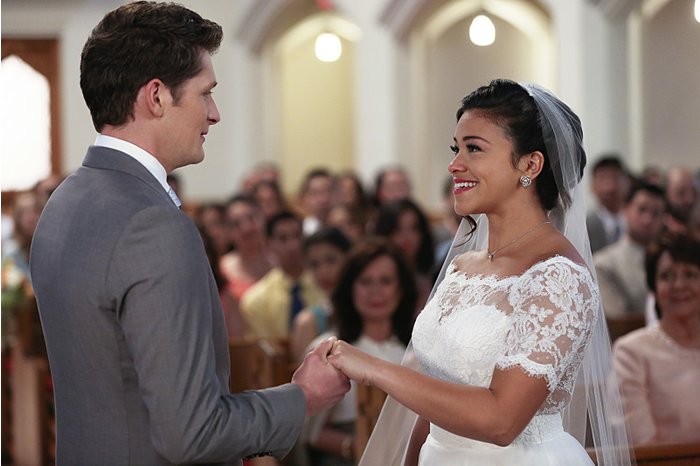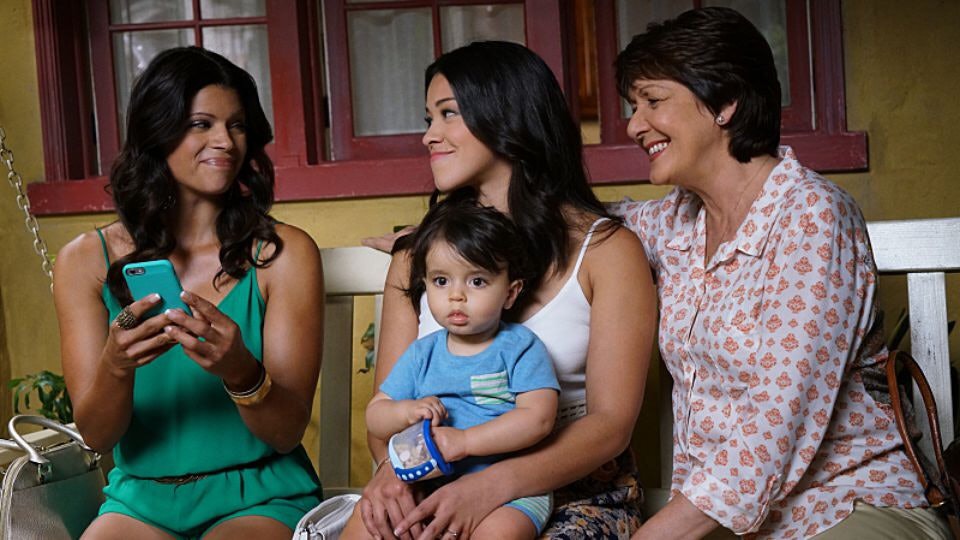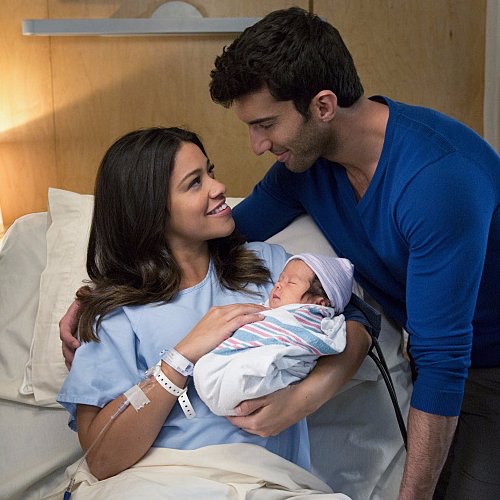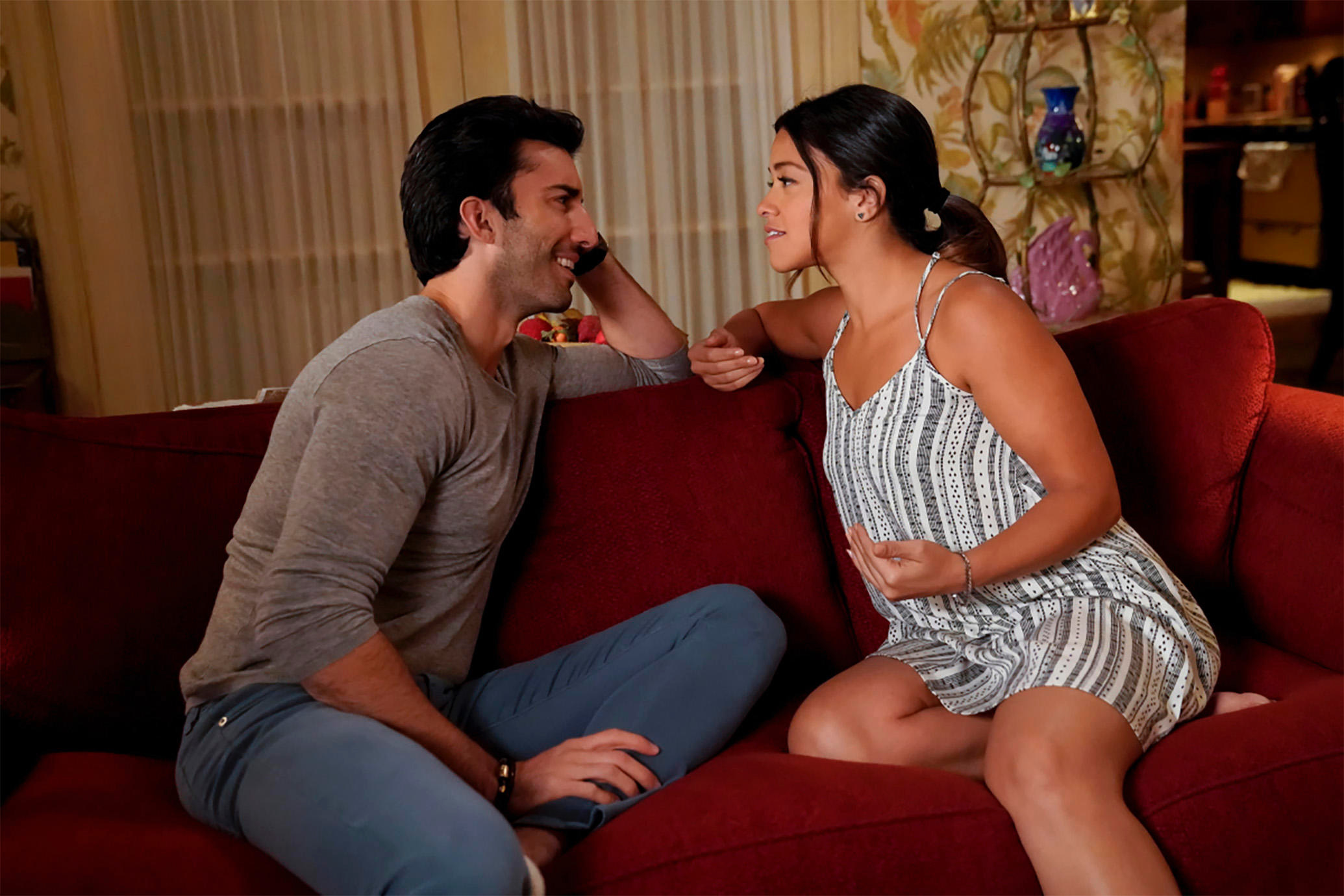The Legacy of Jane the Virgin
All images in this post courtesy of Google Images
“You should watch Jane the Virgin,” my friend told me for months, “I think you’d really like it.” I’d always wave her comment off, citing school or work as an excuse to not be bothered with starting another show - even though it was highly likely that I was consistently rewatching the same episodes of my favorite shows on Netflix, simultaneously pining over Ben Wyatt and Nick Miller.
So over winter break, I finally watched the pilot. It was different from anything I’d ever seen before. The opening sequence, the cheeky narrator, the story, the characters. The show is loosely based off of the Venezuelan telenovela Juana la Virgen. In the first episode, we meet Jane Gloriana Villanueva (portrayed by Gina Rodriguez), a 24-year-old Latina woman who is working her way through college in Miami, and lives in a matriarchal household, with her mother Xiomara and Venezuelan grandmother, Alba. Jane works as a server at The Marbella Hotel, and is in a committed relationship with a detective named Michael Coldero.
Jane's life takes a turn for the dramatic when she is accidentally artificially inseminated at a gynecologist appointment - she becomes a pregnant virgin, and the father of the child is her boss, Rafael Solano, who she kissed once a few years before. It's a lot, I know (and that's not even half of it). Over the past few months, I've enjoyed watching the show and getting to know these characters, laughing (and sometimes crying) along the way. Jane the Virgin is categorized as a romantic comedy drama, but it parodies and incorporates elements of telenovelas. It's heartfelt, honest, unique and funny all at once.
While the first couple of seasons center around Jane and her pregnancy, and adjusting to motherhood, there are so many different interwoven stories and topics that are skillfully addressed throughout the show's four seasons.
One of the more obvious themes is of course sex, since the titular character is a virgin, and remains a virgin for a while during the show's running. Jane was raised Catholic, and when she was ten years old she made a vow to wait until marriage to have sex - this decision was influenced by her Devout Catholic grandmother, Alba, who uses a flower analogy to describe virginity. Jane's mother, Xiomara, had her when she was sixteen, so sex is a sensitive topic in the house. There are juxtaposing ideas of remaining traditional and adapting to modern-day dating that includes casual sex, and dating apps. The show does a great job of covering different characters' sexual identities, as well as their experiences, insecurities, and reactions - most importantly, Jane's. When Jane eventually loses her virginity, a new part of her awakens. She becomes more in touch with herself and what she wants in a partner, and allows herself to be more confident, talk more openly about sex and body positivity, and separate sexiness from her morally conservative upbringing.
Jane is, by all accounts, a hopeless romantic. She believes in love, and over the course of four seasons she has experienced a great deal of heartbreak (including the loss of a spouse, and several attempts at a relationship with the father of her son, and rekindled romances with past loves) but still remains passionate. But the show doesn't only cover the relationships she's had with main characters - there are a lot of flashbacks that provide more insight into Jane's emotional side - crushes, flings or boyfriends that didn't work out, etc. While Jane is a little too cheesy sometimes, she still makes me smile, and when it comes to romance I see a lot of myself in her. Although I've previously prided myself on being cynical, I still believe in love and things working out - but I've realized that timing and fate have a lot do with love, as cliche as that sounds.
While a lot of Jane's personal life is explored, her professional life is just as important. The writers of Jane the Virgin beautifully demonstrate Jane's feelings and frustrations about both, especially how far or how close she is to her goals as a writer. Jane is first introduced as an English major who plans on being a teacher, but she eventually realizes that she wants to pursue her dream of becoming a writer - more specifically, a romance writer. Jane's personality as a writer is channeled more comically, since she has an overactive imagination, which I can appreciate. She's full of ideas and gets so excited about the stories she wants so tell.
One of the things I love most about Jane the Virgin is the honest portrayal of the time it takes to get to where you want to be. It isn’t until the second season of the show, when Jane is finishing grad school, that she gets her first publishing related job. Jane is always trying to find a balance between passion and practicality when it comes to providing for herself. The show has a remarkable way of expressing that all of the jobs we have serve as stepping stones, and help us at certain points in our lives, but we have the ability of moving on to bigger things when we feel that we’re ready, which so many (including myself) can relate to.
Jane the Virgin is also a show that keeps up with a changing political climate, and handled the transition of a new presidential administration rather well. The show made a bold move tackling immigration and later, racial prejudice. Towards the beginning of the series, it's revealed that Jane's grandmother is an undocumented immigrant, and this shakes up the Villanueva family quite a bit as Alba goes through the process of getting approved for a green card. There are tongue-in-cheek digs at Trump but the show doesn't go too far in terms of the characters expressing their dislike of him - but they channel the discomfort through his immigration policies and the emotional (and legal) consequences they place on the Villanueva family. It isn't until season four that Alba passes her citizenship test, and in that scene there is a photo of Trump on the wall but an animation effect makes the photo transform into Obama and he winks at Alba - admittedly, I cackled at this.
What started as a guilty pleasure turned out to be an experience that has moved me in more ways than I thought it would. Jane the Virgin is a show that is full of surprises but still stays true to itself, and has a strong female lead and cast that dominates Latinx representation in American television. We need more shows like Jane the Virgin - a show about love, or rather, different kinds of love and what comes with it - sacrifice, humility, and even uncertainty.
The show was renewed for its fifth and final season last month, and I can't wait to see what it does next - but I know I won't be disappointed.





